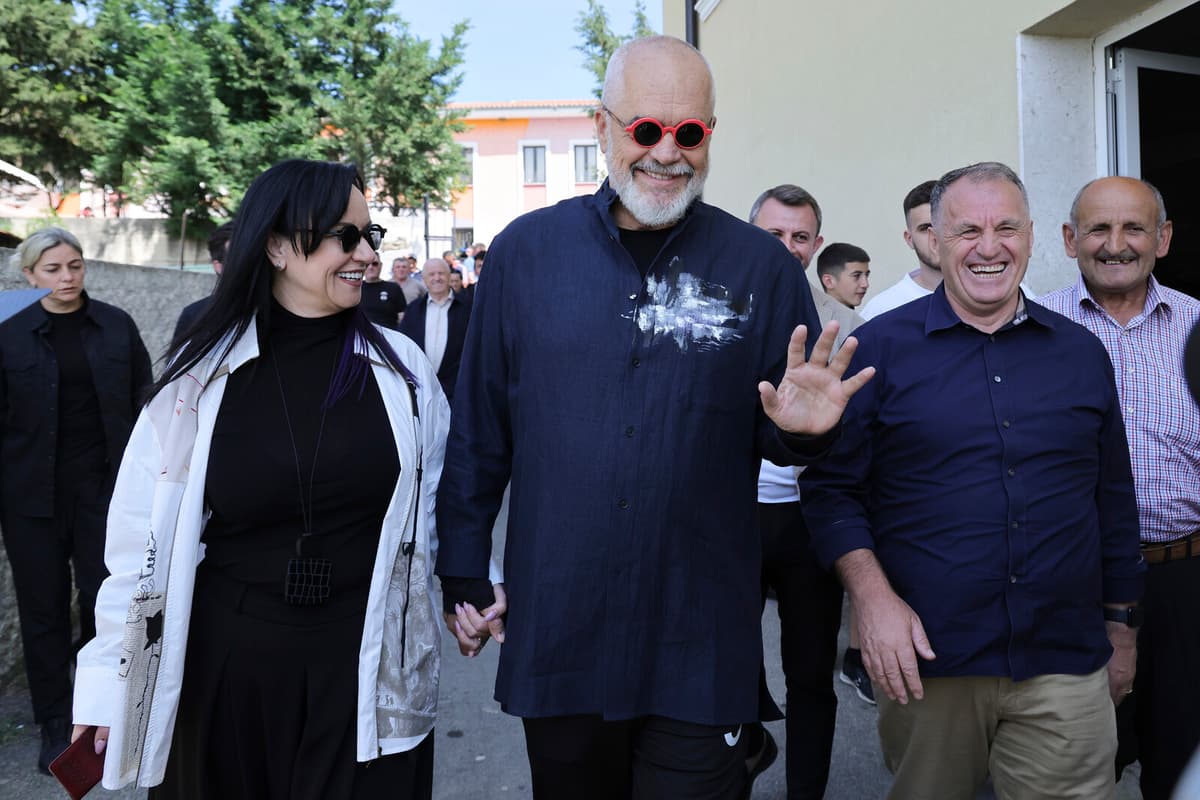Rama's party gets around 52 percent, which corresponds to 82 of the parliament's 140 seats.
The opposition, gathered in a large coalition behind the conservative Democratic Party's leader Sali Berisha, gets around 34 percent, corresponding to 52 seats in parliament.
Three smaller parties take home the rest.
The preliminary result means that the Socialist Party gets its own majority, something they managed to do even in 2021. The election victory also means a fourth term for 60-year-old Rama, who took over the prime minister post from Sali Berisha in 2013.
The party went to the election on a promise of EU membership for Albania within five years. The country has been a candidate country since 2022.
The voter turnout stopped at around 42 percent, compared to the last time, according to Albania's election authority.
The election was followed by hundreds of foreign election observers, including nine Swedish members of parliament. It is described as "calm and well-organized, despite some shortcomings" by the EU.
"Albania's integration process to the EU is a strategic national goal and a project for the entire society, which has strong support among Albania's inhabitants," says the EU's foreign chief Kaja Kallas in a comment.






